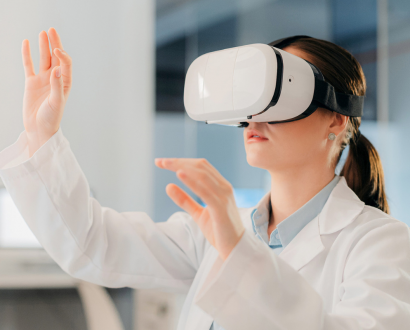What if we are not as intelligent as we imagine? That after all our hard-won qualifications, days of specialised training courses and years of industry experience, we are no longer the smartest mind in the room? It is an uncomfortable thought, but one that we are going to have to learn to live with.
An extreme example will help you imagine how this goes. Let’s say you are an MD specialising in mental health at a children’s hospital. Your colleague, a PhD in computational mathematics, sets up a study of 66 suicide notes; 33 from actual people who had committed suicide and 33 where the researchers had asked members of a local labour union to write what they might leave in an note if they were going to end their life. The researchers took the 66 notes, shuffled them up, and asked about 60 mental health professionals to judge which ones were real and which ones were simulated.
The mental health professionals were as good as the flip of a coin, accurate about 50% of the time. But a natural language processing (NLP) engine, one branch of machine learning, was about 90% accurate. The researchers say this is because the NLP engine looks at sentence structure, noun-verb patterns and so on, without imposing the infinite array of subjective interpretations that humans will assign to these heart-breaking stories.
So this is the reality we have to live with. Computers make better credit decisions than bankers. Machine learning has better diagnostic capability than doctors. Algorithms make better investment decisions than portfolio managers. In a world in which accountants, lawyers and thousands of other professions are soon to be bettered by computing nous, where do we as professionals go?
3 ways in which the battle between man and machine will play out in the near term:
-
Humans will still win at relationships.
Building trust, based on mutual values and a common understanding, knowing when to support a friend or client and when to challenge them, will remain a very human task. Sure, LinkedIn, Facebook, sentiment analysis and Siri/Alexa will supplement us in this space – extending our global reach and deepening our memories – but your closest relationships will be with humans.
-
Technology & human creativity will combine for best results
Great rewards will flow from using advanced computing tools in partnership with human creativity in driving innovation and improving our success rate with it. Simulated market environments, comprised of intelligent agents, can enable us to model how humans might respond to a new value proposition, and predict at what price point they may buy.
Machine learning will detect patterns of process failure or consumer behaviour that we can capitalise on. But these technologies won’t generate new ideas, and they won’t surpass our capacity to make intuitive links between data-enabled insights and creative solutions to human problems.
-
Some human capacities will be surpassed
In process improvement, rules-based decision making, pattern recognition to support image and video analysis, and countless other areas, humans will need to gracefully surrender over time. As so-called cognitive computing steadily gains more brainpower, it will offer us the kind of effective business intelligence we have long wished for, that will clearly surpass our human capacities.
Although software and robotics will surpass certain human capabilities, I don’t think it means we have to admit defeat and accept the dystopian future that Stephen Hawking, Elon Musk and others are warning of right now.
For one thing, market analysts forecast that artificial intelligence will be a US$3,000Bn global market by 2024, and CIBC World Markets suggest CGI is well positioned to succeed in it.
Even so, I do believe we should be investing significant resources to create the regulatory frameworks, industry leadership and governance mechanisms to ensure that cognitive computing evolves in service of humanity. With so much at stake, it would not be inhuman to imagine that a darker future could befall us, if we don’t choose to invest in a brighter one





